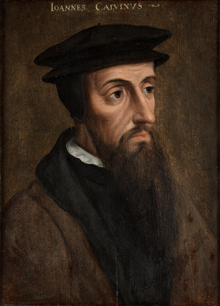Yes, if we look into the Book of Concord we will see it being owned by the Evangelicals (and by this term, the Lutherans, who in the first place did not call themselves, Lutherans, but Evangelicals).
This is taken from the Triglota version of the BoC. Namely, in the chapter named - Formula of Concord - Solid Declaration, Rule and Standard look at paragraph 5]3...
"...we confess also the First, Unaltered Augsburg Confession as our symbol for this time, not because it was composed by our theologians, but because it has been taken from God’s Word and is founded firmly and well therein, precisely in the form in which it was committed to writing, in the year 1530, and presented to the Emperor Charles V at Augsburg by some Christian Electors, Princes, and Estates of the Roman Empire as a common confession of the reformed churches, whereby our reformed churches are distinguished from the Papists and other repudiated and condemned sects and heresies, after the custom and usage of the early Church, whereby succeeding councils, Christian bishops and teachers appealed to the Nicene Creed, and confessed it [publicly declared that they embraced it]".
The word Reformed was referred by Lutherans to themselves. Now I wonder what happened that they lost that label? By history then, this is the first label high jacked from them. Looks like there is always a habit of originating helpful concepts in theology and then relinquishing them to those who disagreed with them.
For example, the "solas" were coined by Lutherans first. Then the others who rally against RCC, have adopted these "solas", though badly mis-applied and mis-understood.
The last one, the word Evangelical. This is now lost out of the Lutherans. Yet, this is the preferred term they self-identified with. Today, Lutherans now negate and deny they could have happened if the Lutherans in an irenic manner, engaged with non-denominational Christians who identified themselves as "Evangelicals" and taught them what that means. Unfortunately they are not looked at by Lutherans as Christians that need to work with. Rather, the Lutherans blame and demonize them. Rather than influencing them, Lutherans, retreated into their mud puddle. This a bit sad, because like an Older/Big Brother, Lutherans could have been a great lead in the growth of Western Protestant movement. To go back to the "solas", we all know non-Lutherans are puzzled why Lutherans can teach "sola fide'" and yet assert "baptism saves". They do not know how these two are compatible. Perhaps had the Lutherans been out going to modern-day "evangelicals" by first considering them as Christians needing leadership and understanding, something like what the first disciples through Priscilla and Aquila (see Acts 18:26) did to Apollos, perhaps things would have been different.
Thanks for hearing me talk out loud.
Heads-Up: In the next posts, the Lord willing - I will do a series of clarification on "Intuitu Fide" and further critique of Walther/Waltherianism.


2 comments:
The same is true of Protestant. That was the term used by the Lutherans at the Speyer Conference, meaning "a positive testimony." The non-Lutherans like to call themselves Evangelicals, Protestants, and Reformed.
That is indeed true - it was meant to be positive affirmation.
LPC
Post a Comment